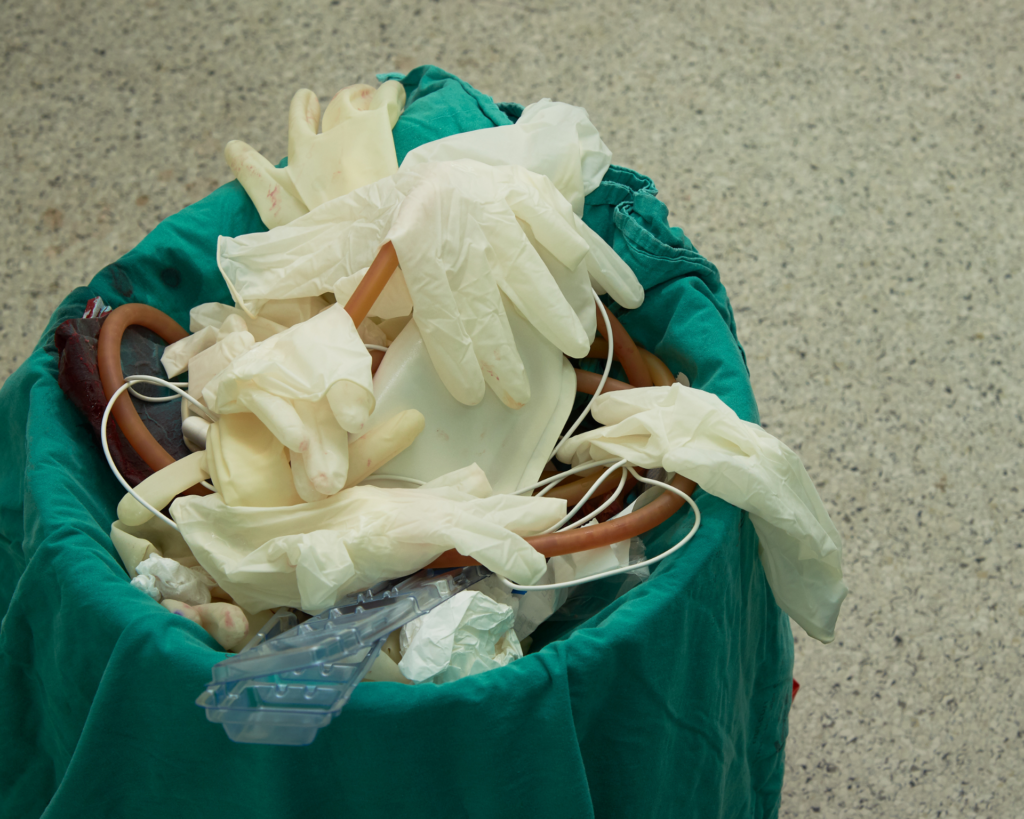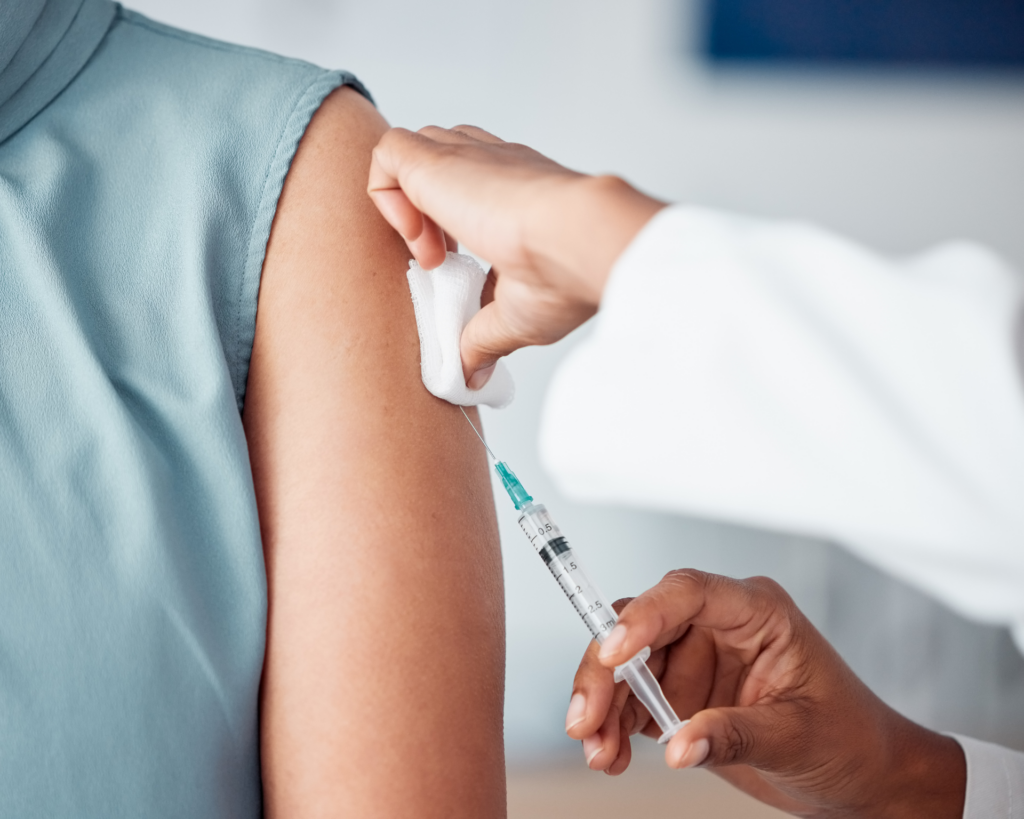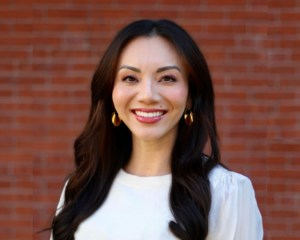Michael Stein
Editor-at-Large
produced by: Boston University School of Public Health
produced by: Boston University School of Public Health
The instinct to move is human—we were built for it. And yet, in today’s world, we spend most of our time being still.
Food assistance programs firmly support child development, but their impact on adult mental health depends heavily on context.
While fast fashion may appeal to budget-conscious consumers, the industry generates 1.2 billion tons of greenhouse gas emissions annually.
Monica L. Wang, PHP’s executive editor, discusses her public health passions and what drew her to the work of Public Health Post.
The Trump administration’s restrictive immigration policies are destabilizing a health care workforce the country cannot afford to lose.
Join over 14,000 subscribers receiving our weekly email newsletter.
Over 70% of men say they would discontinue taking antidepressants if they regularly experienced sexual dysfunction.
During health emergencies, people with lower incomes and limited access to care were more likely to seek support at mobile clinics.
Research shows that quitting smoking adds years to your life, no matter when you stop. But the earlier you quit, the greater the reward.

Michael Stein is the dean ad interim at Boston University School of Public Health, editor-at-large for Public Health Post, and author, most recently of the books Me vs Us: A Health Divided, Accidental Kindness: A Doctor’s Notes on Empathy, and The Turning Point: Reflections on a Pandemic with Sandro Galea. He is a physician and health services researcher who is an international authority on the intersection of primary care, mental health, and substance use disorders.
Editor-at-Large
Michael Stein is the dean ad interim at Boston University School of Public Health, editor-at-large for Public Health Post, and author, most recently of the books Me vs Us: A Health Divided, Accidental Kindness: A Doctor’s Notes on Empathy, and The Turning Point: Reflections on a Pandemic with Sandro Galea. He is a physician and health services researcher who is an international authority on the intersection of primary care, mental health, and substance use disorders.

Monica L. Wang, ScD, MS, is an associate professor of community health sciences at Boston University School of Public Health and the executive editor of Public Health Post. A nationally recognized public health leader, researcher, author, and educator, Dr. Wang focuses on the social and structural drivers of health, chronic disease prevention, and community-engaged strategies to improve population well-being. Outside of work, she’s a runner, artist, baker, and proud mom. If she weren’t in public health, her dream job would be designing beautiful spaces as an interior designer or whipping up new recipes on her own Food Network show.
Executive Editor
Monica L. Wang, ScD, MS, is an associate professor of community health sciences at Boston University School of Public Health and the executive editor of Public Health Post. A nationally recognized public health leader, researcher, author, and educator, Dr. Wang focuses on the social and structural drivers of health, chronic disease prevention, and community-engaged strategies to improve population well-being. Outside of work, she’s a runner, artist, baker, and proud mom. If she weren’t in public health, her dream job would be designing beautiful spaces as an interior designer or whipping up new recipes on her own Food Network show.

Mallory Bersi joined Public Health Post after several years of working as a writer in public health communications. She received her MPH from Boston University School of Public Health with a focus in health communication and promotion and maternal and child health. When she is not getting lost in a good book or (overly) invested in TV characters, she enjoys experimenting with new recipes in the kitchen.
Managing Editor
Mallory Bersi joined Public Health Post after several years of working as a writer in public health communications. She received her MPH from Boston University School of Public Health with a focus in health communication and promotion and maternal and child health. When she is not getting lost in a good book or (overly) invested in TV characters, she enjoys experimenting with new recipes in the kitchen.

Jack Mellom is an MPH candidate at Boston University School of Public Health, studying health communication and promotion. His passions include promoting public health through new mediums in hopes of making its dissemination digestible for all. He has a background in plant sciences, which has given way to his love of public horticulture being used to improve health, as well as his love of plants. His favorite tree is the Live Oak. Outside of his public health work, Jack loves all things music, his favorite artist being Vampire Weekend.
Multimedia Fellow
Jack Mellom is an MPH candidate at Boston University School of Public Health, studying health communication and promotion. His passions include promoting public health through new mediums in hopes of making its dissemination digestible for all. He has a background in plant sciences, which has given way to his love of public horticulture being used to improve health, as well as his love of plants. His favorite tree is the Live Oak. Outside of his public health work, Jack loves all things music, his favorite artist being Vampire Weekend.

Bernadette Carter-Salmond is an MPH candidate at Boston University School of Public Health, studying health communication and promotion. Some of her public health interests include mental health, sexual and reproductive health, substance use, and environmental justice. She is especially passionate about how public health issues intersect with vulnerable populations. In her free time, she enjoys watching anime and sports, meditating, and going to comedy shows.
Writing Fellow
Bernadette Carter-Salmond is an MPH candidate at Boston University School of Public Health, studying health communication and promotion. Some of her public health interests include mental health, sexual and reproductive health, substance use, and environmental justice. She is especially passionate about how public health issues intersect with vulnerable populations. In her free time, she enjoys watching anime and sports, meditating, and going to comedy shows.

Mallika Chimpiri is an MPH candidate at Boston University School of Public Health, studying epidemiology and biostatistics. Her interest in public health stems from a passion for clinical medicine and exploring how various determinants can intersect to manifest population-level disease. In her free time, Mallika can be found reading fiction, rewatching comfort shows, or taking portraits of her friends.
Writing Fellow
Mallika Chimpiri is an MPH candidate at Boston University School of Public Health, studying epidemiology and biostatistics. Her interest in public health stems from a passion for clinical medicine and exploring how various determinants can intersect to manifest population-level disease. In her free time, Mallika can be found reading fiction, rewatching comfort shows, or taking portraits of her friends.

Rowena Lindsay is an MPH candidate at Boston University School of Public Health, specializing in epidemiology & biostatistics and health communications. She is passionate about reproductive and environmental health. Her background is in science journalism, and as both a writer and public health practitioner, she aims to empower people to make informed decisions in all aspects of their lives. Outside business hours, you can find her hiking, practicing yoga, and listening to audiobooks while crafting.
Writing Fellow
Rowena Lindsay is an MPH candidate at Boston University School of Public Health, specializing in epidemiology & biostatistics and health communications. She is passionate about reproductive and environmental health. Her background is in science journalism, and as both a writer and public health practitioner, she aims to empower people to make informed decisions in all aspects of their lives. Outside business hours, you can find her hiking, practicing yoga, and listening to audiobooks while crafting.

Aidan Stotz is an MPH candidate at Boston University School of Public Health, studying epidemiology and biostatistics with a concentration in chronic and non-communicable diseases. He is passionate about cancer epidemiology, particularly pediatric cancer research, and examining how social determinants shape health inequities. His experience includes rural and urban mental health, data analysis, and social justice advocacy. In his free time, he enjoys reading, discovering new music, and thrifting.
Writing Fellow
Aidan Stotz is an MPH candidate at Boston University School of Public Health, studying epidemiology and biostatistics with a concentration in chronic and non-communicable diseases. He is passionate about cancer epidemiology, particularly pediatric cancer research, and examining how social determinants shape health inequities. His experience includes rural and urban mental health, data analysis, and social justice advocacy. In his free time, he enjoys reading, discovering new music, and thrifting.

Jennifer Beard is a clinical associate professor of global health at Boston University School of Public Health and the associate editor of Public Health Post. She was a co-principal investigator for the multi-study Ghana Operations Research for Key Populations project, which focused on HIV prevention and other needs of young female sex workers and their intimate partners, prisoners, men who have sex with men, post-secondary female students, women who work in bars, people who inject drugs, and people living with HIV at risk of dropping out of antiretroviral therapy.
Associate Editor
Jennifer Beard is a clinical associate professor of global health at Boston University School of Public Health and the associate editor of Public Health Post. She was a co-principal investigator for the multi-study Ghana Operations Research for Key Populations project, which focused on HIV prevention and other needs of young female sex workers and their intimate partners, prisoners, men who have sex with men, post-secondary female students, women who work in bars, people who inject drugs, and people living with HIV at risk of dropping out of antiretroviral therapy.

Michael Stein is the dean ad interim at Boston University School of Public Health, editor-at-large for Public Health Post, and author, most recently of the books Me vs Us: A Health Divided, Accidental Kindness: A Doctor’s Notes on Empathy, and The Turning Point: Reflections on a Pandemic with Sandro Galea. He is a physician and health services researcher who is an international authority on the intersection of primary care, mental health, and substance use disorders.
Editor-at-Large
Michael Stein is the dean ad interim at Boston University School of Public Health, editor-at-large for Public Health Post, and author, most recently of the books Me vs Us: A Health Divided, Accidental Kindness: A Doctor’s Notes on Empathy, and The Turning Point: Reflections on a Pandemic with Sandro Galea. He is a physician and health services researcher who is an international authority on the intersection of primary care, mental health, and substance use disorders.

Monica L. Wang, ScD, MS, is an associate professor of community health sciences at Boston University School of Public Health and the executive editor of Public Health Post. A nationally recognized public health leader, researcher, author, and educator, Dr. Wang focuses on the social and structural drivers of health, chronic disease prevention, and community-engaged strategies to improve population well-being. Outside of work, she’s a runner, artist, baker, and proud mom. If she weren’t in public health, her dream job would be designing beautiful spaces as an interior designer or whipping up new recipes on her own Food Network show.
Executive Editor
Monica L. Wang, ScD, MS, is an associate professor of community health sciences at Boston University School of Public Health and the executive editor of Public Health Post. A nationally recognized public health leader, researcher, author, and educator, Dr. Wang focuses on the social and structural drivers of health, chronic disease prevention, and community-engaged strategies to improve population well-being. Outside of work, she’s a runner, artist, baker, and proud mom. If she weren’t in public health, her dream job would be designing beautiful spaces as an interior designer or whipping up new recipes on her own Food Network show.

Mallory Bersi joined Public Health Post after several years of working as a writer in public health communications. She received her MPH from Boston University School of Public Health with a focus in health communication and promotion and maternal and child health. When she is not getting lost in a good book or (overly) invested in TV characters, she enjoys experimenting with new recipes in the kitchen.
Managing Editor
Mallory Bersi joined Public Health Post after several years of working as a writer in public health communications. She received her MPH from Boston University School of Public Health with a focus in health communication and promotion and maternal and child health. When she is not getting lost in a good book or (overly) invested in TV characters, she enjoys experimenting with new recipes in the kitchen.

Jack Mellom is an MPH candidate at Boston University School of Public Health, studying health communication and promotion. His passions include promoting public health through new mediums in hopes of making its dissemination digestible for all. He has a background in plant sciences, which has given way to his love of public horticulture being used to improve health, as well as his love of plants. His favorite tree is the Live Oak. Outside of his public health work, Jack loves all things music, his favorite artist being Vampire Weekend.
Multimedia Fellow
Jack Mellom is an MPH candidate at Boston University School of Public Health, studying health communication and promotion. His passions include promoting public health through new mediums in hopes of making its dissemination digestible for all. He has a background in plant sciences, which has given way to his love of public horticulture being used to improve health, as well as his love of plants. His favorite tree is the Live Oak. Outside of his public health work, Jack loves all things music, his favorite artist being Vampire Weekend.

Bernadette Carter-Salmond is an MPH candidate at Boston University School of Public Health, studying health communication and promotion. Some of her public health interests include mental health, sexual and reproductive health, substance use, and environmental justice. She is especially passionate about how public health issues intersect with vulnerable populations. In her free time, she enjoys watching anime and sports, meditating, and going to comedy shows.
Writing Fellow
Bernadette Carter-Salmond is an MPH candidate at Boston University School of Public Health, studying health communication and promotion. Some of her public health interests include mental health, sexual and reproductive health, substance use, and environmental justice. She is especially passionate about how public health issues intersect with vulnerable populations. In her free time, she enjoys watching anime and sports, meditating, and going to comedy shows.

Mallika Chimpiri is an MPH candidate at Boston University School of Public Health, studying epidemiology and biostatistics. Her interest in public health stems from a passion for clinical medicine and exploring how various determinants can intersect to manifest population-level disease. In her free time, Mallika can be found reading fiction, rewatching comfort shows, or taking portraits of her friends.
Writing Fellow
Mallika Chimpiri is an MPH candidate at Boston University School of Public Health, studying epidemiology and biostatistics. Her interest in public health stems from a passion for clinical medicine and exploring how various determinants can intersect to manifest population-level disease. In her free time, Mallika can be found reading fiction, rewatching comfort shows, or taking portraits of her friends.
Just keep an eye out for this tag Guest Author
Our guest authors come from a variety of backgrounds including academia, journalism, government, health, science, and thought leadership.
Want to write for us?
Learn More
Research shows that quitting smoking adds years to your life, no matter when you stop. But the earlier you quit, the greater the reward.

As more people turn to social media for health advice, posts about medical testing may be a possible new driver of overdiagnosis.

Insurance-related paperwork is a key driver of physician burnout, with clear downstream harms on patient care and efficiency.

ACEs in a firstborn child's first 1,000 days of life were associated with increased mental health care needs among the child's siblings.

Psilocybin therapy may help ease end-of-life dread, but broader acceptance requires better patient education and clinician training.

While an orange won't replace your psychiatrist, a gut microbe that thrives on citrus fruit has been linked to a lower risk of depression.

The instinct to move is human—we were built for it. And yet, in today's world, we spend most of our time being still.

Food assistance programs firmly support child development, but their impact on adult mental health depends heavily on context.

The Trump administration’s restrictive immigration policies are destabilizing a health care workforce the country cannot afford to lose.

During health emergencies, people with lower incomes and limited access to care were more likely to seek support at mobile clinics.

Firearm violence in public housing has been shown to increase with rising temperatures, but access to air conditioning may mitigate this risk.

Remote monitoring devices offer a promising way to track patient vitals and alert providers to changes before they become life-threatening.

While fast fashion may appeal to budget-conscious consumers, the industry generates 1.2 billion tons of greenhouse gas emissions annually.

A single patient in a U.S. hospital generates around 42 pounds of waste per day. Where does all this trash go, and why does it matter?

Emergency department visits increased 6% the week following a dust storm, highlighting the need for improved environmental hazard planning.

Regulatory monitors are the gold standard for collecting air quality data, but marginalized communities have fewer monitors than White areas.

Babies exposed to high levels of NO2 in the final weeks of pregnancy had a 30% higher risk of NICU admission than those with cleaner air.

Using plastic cookware daily could introduce up to 5,000 pieces of microplastics into your meals each year.

Over 70% of men say they would discontinue taking antidepressants if they regularly experienced sexual dysfunction.

Higher maternal stress, anxiety, and depressive symptoms during pregnancy are associated with higher negative temperament in children.

Teens with autism and other developmental disabilities were less likely to use hormonal contraceptives than their typically developing peers.

Following the Dobbs decision, the number of women using period-tracking apps has increased from 37% to 45%, raising privacy concerns.

Pregnant women supported by a doula were 46% more likely to attend a postpartum appointment than those without.

As sex toys break down with use, they may release harmful chemicals, like phthalates and microplastics, inside the body.

Adults living in the Stroke Belt were 1.2 times more likely to suffer a stroke than their counterparts living elsewhere.

The health landscape in the United States reveals that both access barriers and exemption trends are contributing to vaccination gaps.

When early detection can mean the difference between life and death, AI-assisted cancer detection offers a promising way forward.

Once patients have the access and motivation to get their flu shot, they will likely continue to do so in the future.

The persistent inequity in COVID-19 vaccination rates has had daunting health, social, and economic consequences worldwide.

The Mini-PASS initiative shows that portable water systems can be a safe, effective alternative to modern plumbing in rural communities that lack infrastructure.
Public Health Post is a daily population health publication written by Boston University School of Public Health students and leading public health experts. Every day, we spotlight critical intersections in public health and social justice to advance conversations about health in the United States.





